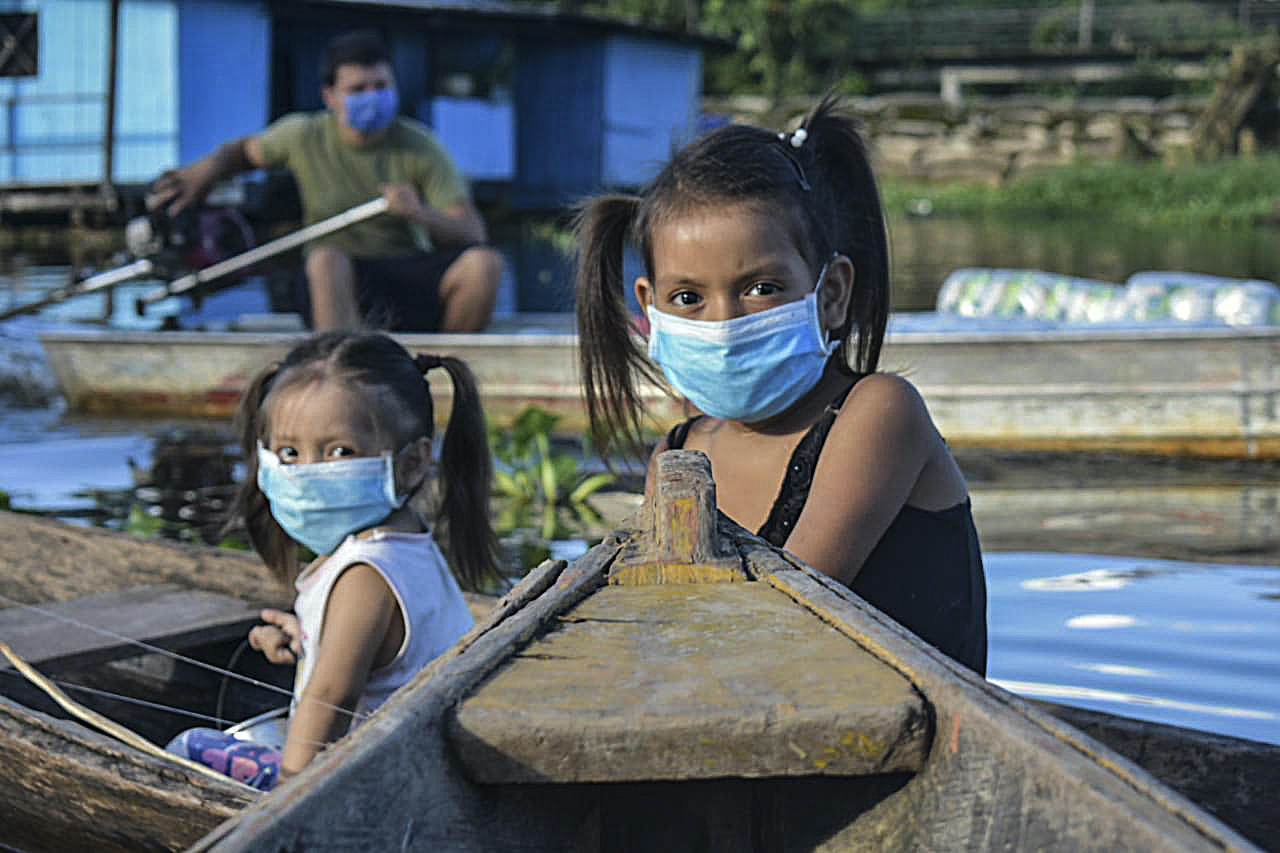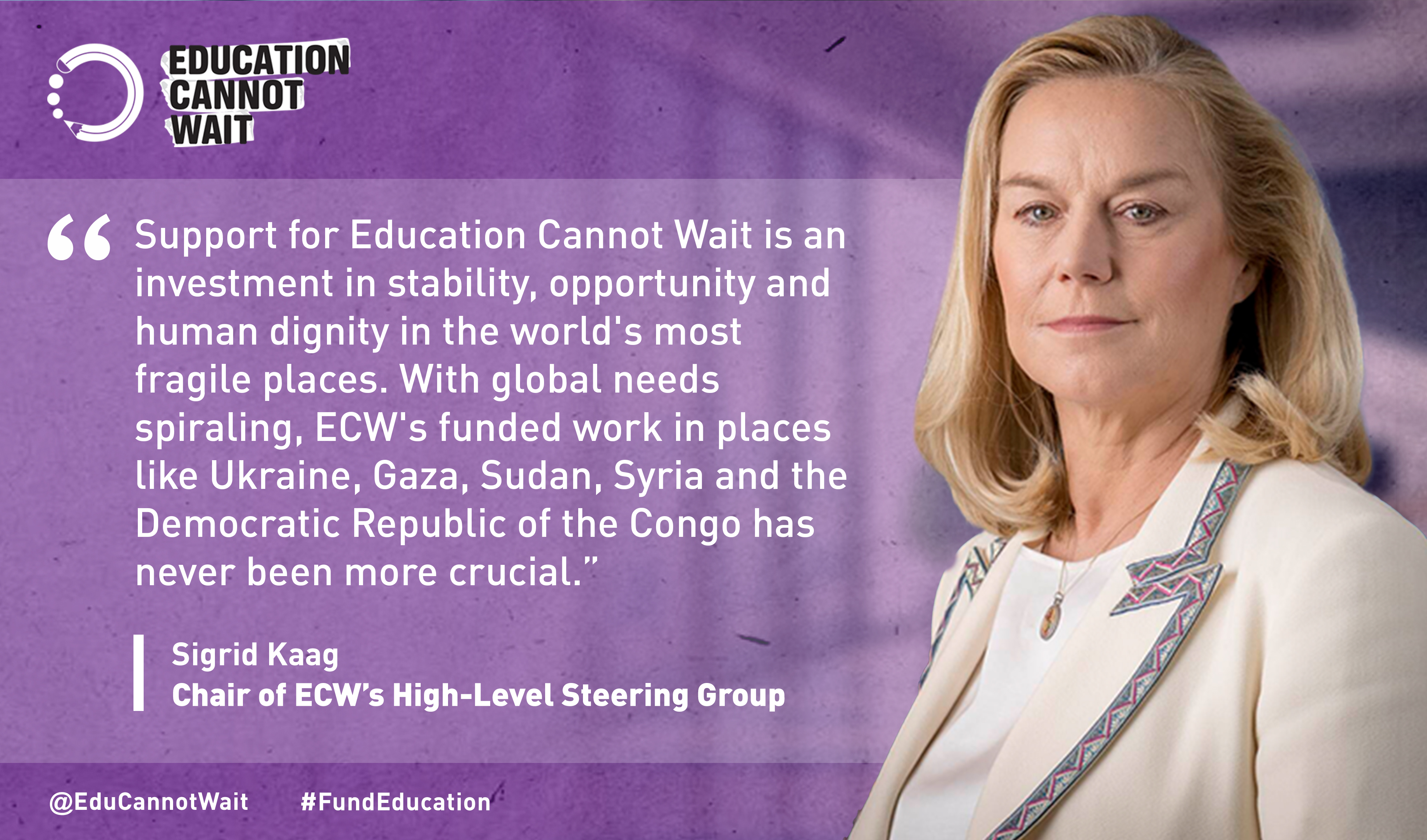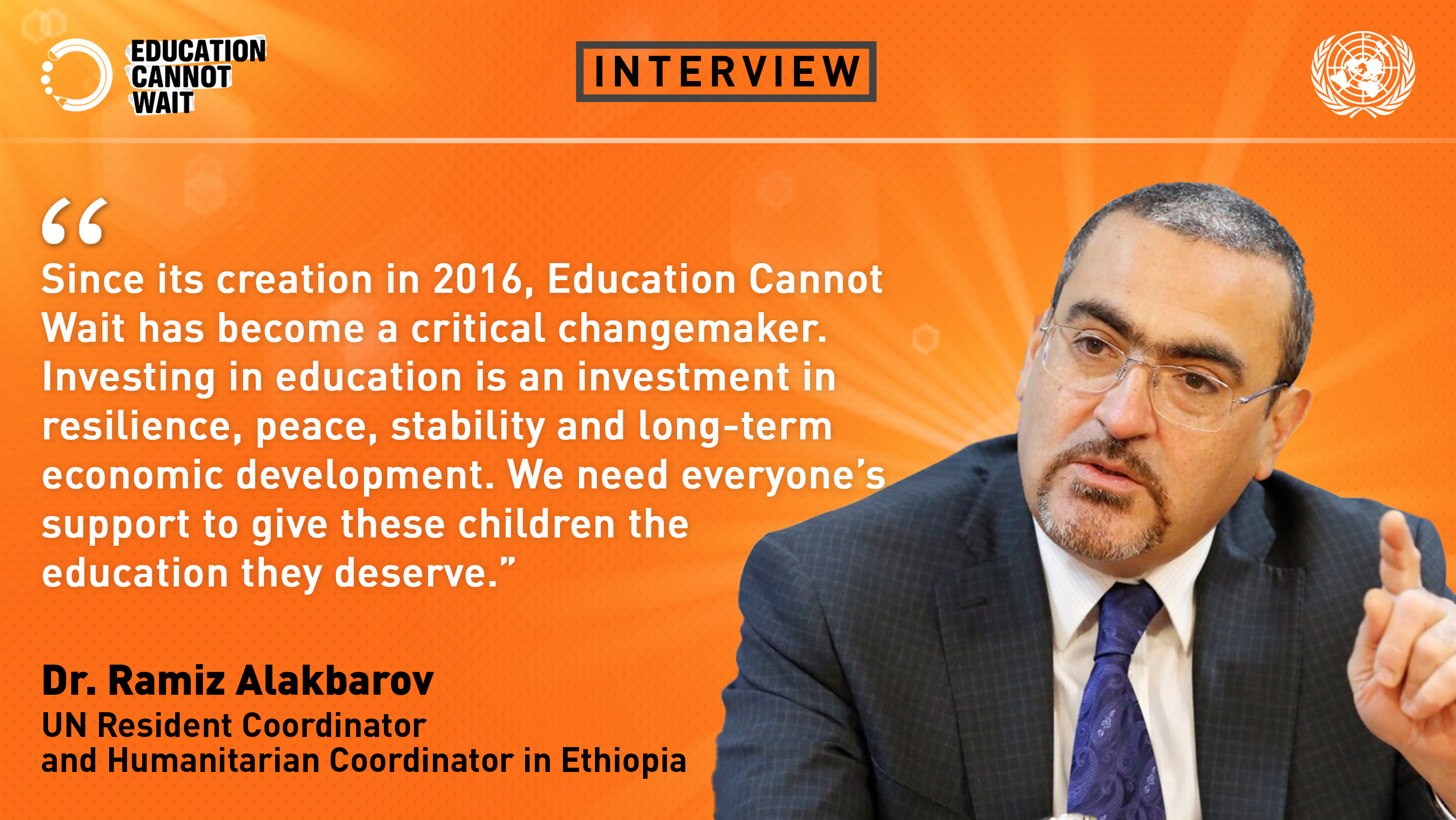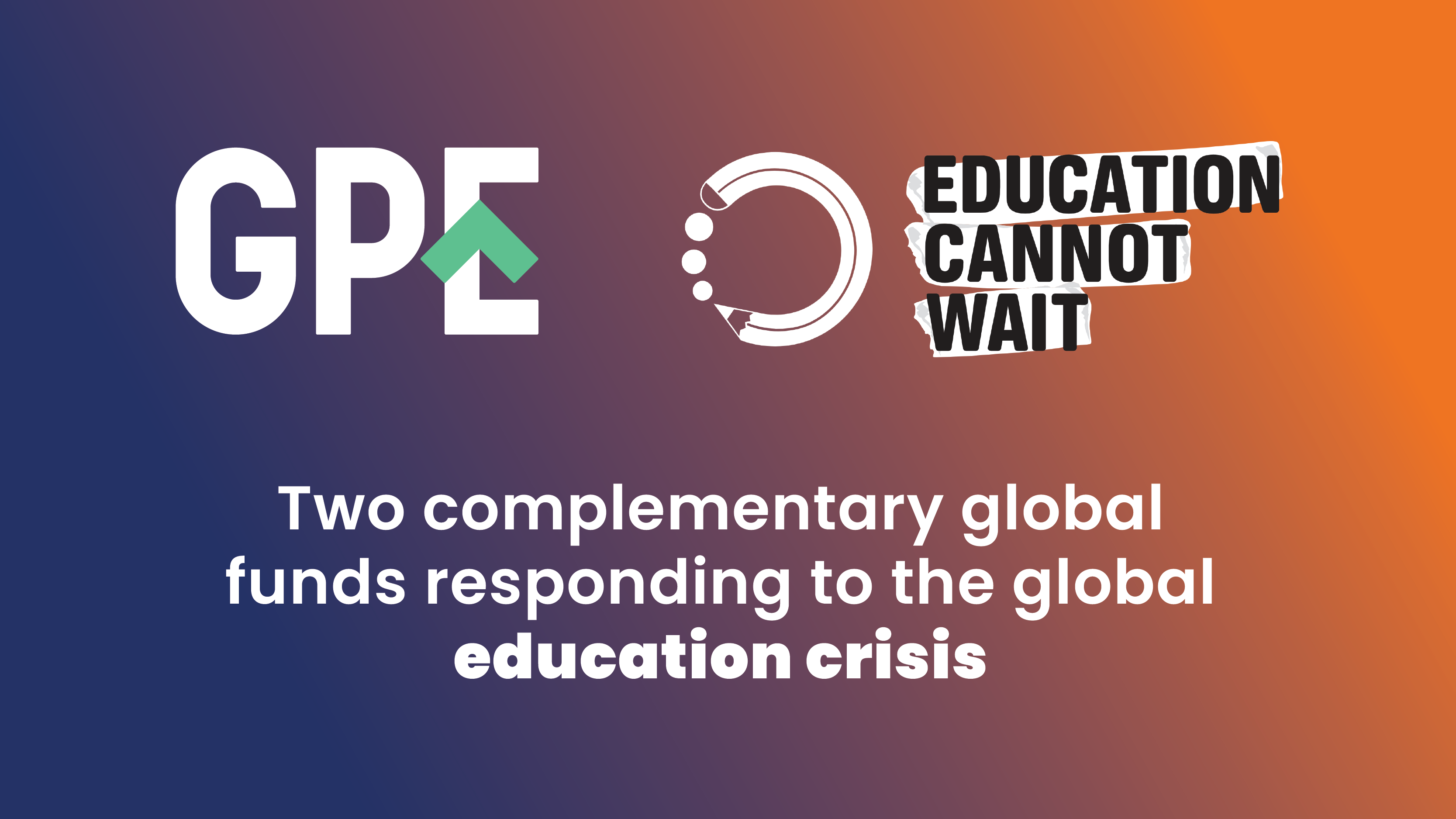Under-secretary-general for Humanitarian Affairs and Emergency Relief Coordinator, Mark Lowcock – Remarks to the Education Cannot Wait High-level Steering Group on Anticipatory Action

As prepared for delivery | Virtual Meeting, 11 September 2020 | View Original
Thank you, Gordon [Brown].
I’m impressed by Education Cannot Wait’s achievements. You have helped more than 2 million children access education and raised US$ 637 million.
It’s a privilege to be part of this group and talk about the exciting collaboration on anticipatory action.
The COVID-19 pandemic and its socio-economic impacts are the biggest crisis in our lifetime. While some countries are cautiously recovering, others are teetering on the brink of disaster, with the worst still to come.
While the humanitarian, protection, economic and social impacts of the pandemic escalate, ongoing crises such as droughts and disease will endure, and new ones will break out.
Children will be at the sharp end, and their education will suffer.
Fortunately, we can now more accurately predict disasters and their impacts.
We can anticipate humanitarian needs and act early to mitigate or prevent suffering before a crisis spirals out of control.
We can use evidence of risk – instead of suffering – to take anticipatory action.
A recent study by the World Food Programme found that for every dollar spent on anticipatory action, households generated more than two-and-a-half times the value in in socio-economic outcomes. Even if no crisis occurs, every dollar spent yielded $1.60 in social value. Anticipatory action pays off.
It’s an approach that’s faster, cheaper, and more dignified. One that protects hard-won development gains. One that deals with problems before they arise. One that keeps children going to school and learning.
A few recent examples.
In June, forecasts for Somalia showed that the number of severely food-insecure people would triple to 3.5 million during the lean season. I released $15 million from the Central Emergency Response Fund (CERF) to the FAO, IOM, UNHCR, UNICEF, WFP and WHO to cover health, food security, water and sanitation, nutrition and protection assistance.
In July, severe flooding was forecasted for Bangladesh’s Jamuna River which automatically triggered the immediate release of CERF to help 220,000 people prepare and protect themselves before peak flood with cash, animal feed, storage drums, and health, dignity and hygiene kits.
This was the fastest CERF funding release in history – within four hours of the trigger being activated.
We know that many families who received cash will invest in the education of their children. And we know this investment will go beyond education.
When children can stay in school, they are less exposed to the risks of violence, trafficking, child labor, child marriage and recruitment by armed groups. Many receive their only daily meal at school.
There is an economic impact, too. The Brookings Institute estimates that future earnings of four months of lost education in the US due to COVID-19 amounts to $2.5 trillion—12.7 percent of annual GDP.
In June this year, I committed to release up to $140 million for anticipatory action projects. It’s a good start but this alone won’t be enough. I’m excited about ECW joining the funds supporting anticipatory action.
By pre-committing funds to be released when a trigger is reached, you ensure schools remain open and children continue their education.
It is good news that the ECW’s new Operations Manual now enables anticipatory action under the First Emergency Response and the Multi-Year Resilience Programme window. OCHA will continue to support ECW on the next steps, including by identifying projects that can be financed.
These are extraordinary times and they call for bold new approaches.
We face unprecedented needs and sharper resource constraints.
We have no choice but to squeeze the most value from every dollar we spend.
Investing in education is a win-win for everyone. I hope that many donors – including those of you here today – will contribute generously to this new approach through our funds.
By doing so, you are investing in a better future for all of us.
Thank you.
UN Office for the Coordination of Humanitarian Affairs
To learn more about OCHA’s activities, please visit https://www.unocha.org/.



